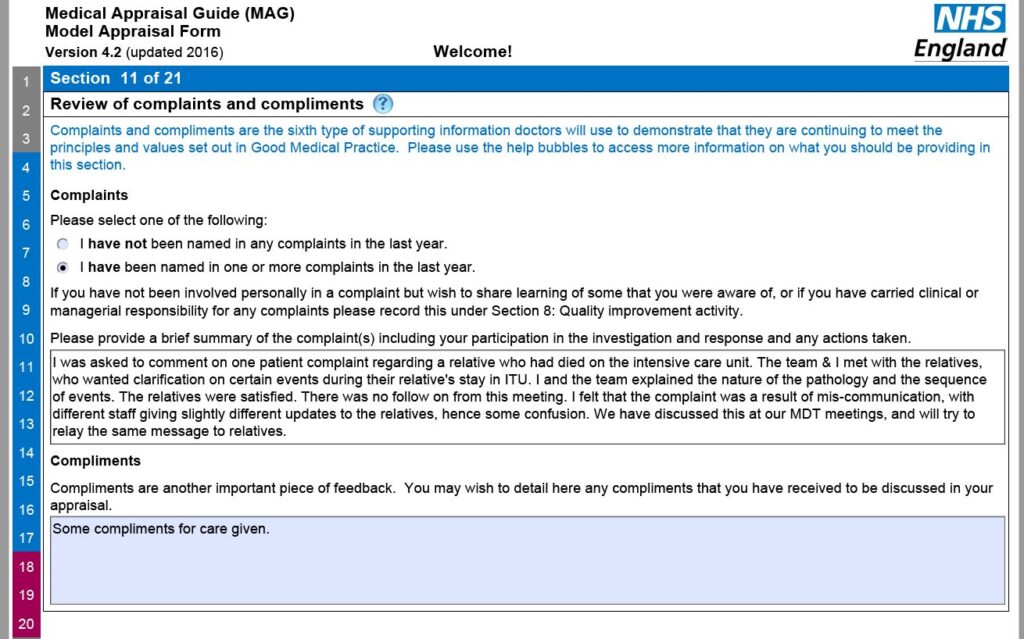Complaints and compliments is incredibly important.
Many Responsible Officers require appraisees to provide evidence that they have or have not been named in complaints from their main employer, eg. PALS office, as well as from other places that the appraisee works, eg. locum agencies, private hospitals etc.
Please be aware that all inputs into the appraisal portfolio must be anonymised and contain NO identifiable information – patient or colleague.
You must reflect on your adverse outcomes or complaints.
The form is as below, and I have put in an example of a simple complaint and basic reflection on that complaint as an example.

The idea of writing this information down and reflecting on it is not to admit guilt, but to highlight learning from any adverse incidents, which you can discuss with your appraiser.
The GMC has highlighted that learning from adverse incidents as vital to a doctor’s own personal development, and vital if patient safety is to be improved.
Your appraisal form will have a box for writing a summary of events and another box for any learning or reflection on the event, like the MAG form above.
Not writing anything demonstrates a reluctance to admit that things have gone wrong and a closed learning behaviour.
There are methods which help in reflecting on adverse events, and now most critical reflective techniques involve using a 3 stage process to analyse and write about the event –
1. The what?
A description of the incident/experience with just enough detail to support doing your “So what?” section next. For example, description about who, what, why, when, where.
2. So what?
This is the sense-making section that asks you to look at general issues surrounding the event, any significance of the events to you or the team, your view point; your actions; your feelings (pre – during – post the event).
3. Now what?
This makes connections from the experience / incident to further actions and learning. For example, what would you do differently / the same next time? How come? What are key points, lessons learnt to share with your colleagues, team, mentor? (eg. idea, skills, process, concept)? How will you do this?
Taken from http://www.education.vic.gov.au/Documents/childhood/professionals/support/reffram.pdf
It is also important to write about your compliments – analyse what went right for the patient to bother to thank you –
- is there anything that happened during that patient’s episode that you could regularly adopt in your practice?
- Did the episode highlight any particular skills that you have, that you could teach others?
Please be aware that all inputs into the appraisal portfolio must be anonymised.